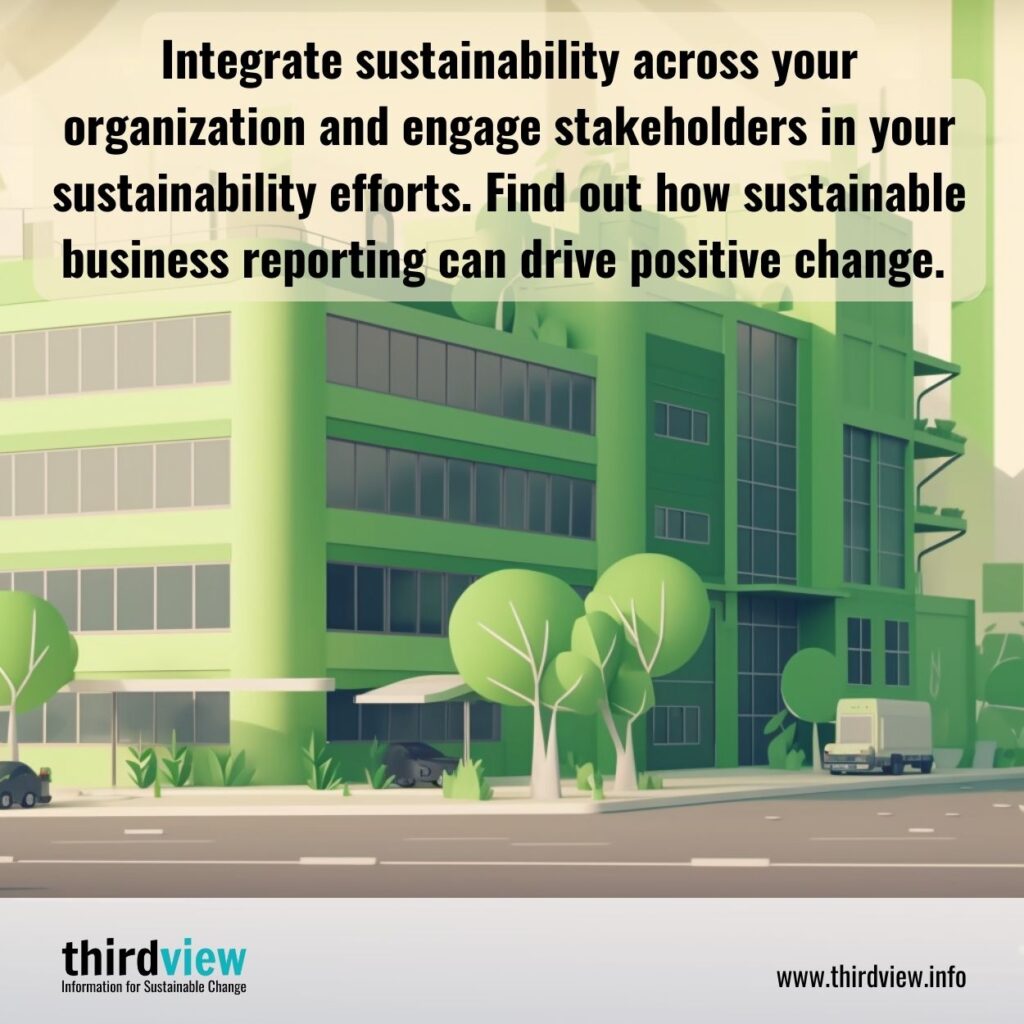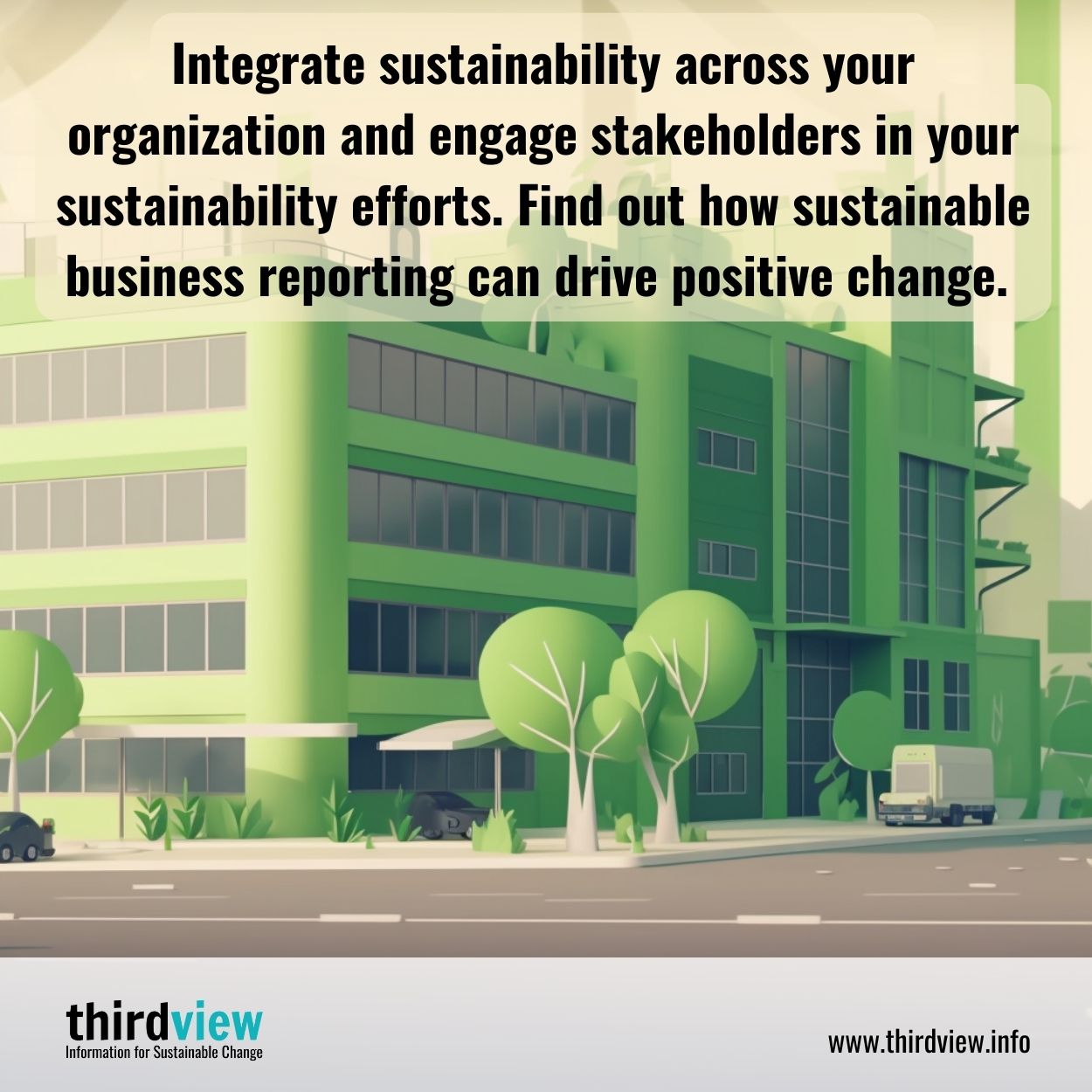As awareness of climate change and environmental concerns continues to grow, businesses are increasingly under pressure to demonstrate their sustainability efforts. This has led to a greater focus on sustainable business reporting, which refers to the practice of measuring and disclosing a company’s social, environmental, and economic performance. In this blog post, we’ll explore the key steps to implementing sustainable business reporting into your organization and highlight why it’s a critical process for any company looking to build a more sustainable and responsible future.
Understand the Issues
To begin implementing sustainable business reporting, it’s essential to understand the issues at stake. This includes identifying the environmental and social impacts of your business operations, as well as the risks and opportunities associated with sustainability. Climate change, pollution, deforestation, and social inequality are just some of the issues that can impact your company’s reputation and financial performance. By understanding these risks and opportunities, you can begin to develop a comprehensive strategy for addressing them.
Set Goals and Targets
Once you have a clear understanding of the sustainability issues affecting your business, you can begin to set goals and targets for improvement. This involves identifying the areas where your company can have the most significant impact, such as reducing your carbon footprint, improving supply chain transparency, or promoting diversity and inclusion within your organization. These goals should be specific, measurable, and aligned with industry best practices and global sustainability targets, such as the UN Sustainable Development Goals.
Integrate Sustainability Across Your Organization
Sustainable business reporting is not just the responsibility of your sustainability team or CSR department; it should be integrated across your entire organization. This means engaging all stakeholders, from employees and suppliers to customers and investors, in your sustainability efforts. It also requires embedding sustainability principles into your business processes, such as procurement, product design, and supply chain management. By creating a culture of sustainability, you can ensure that your sustainability efforts are implemented consistently and effectively.
Measure and Monitor Performance
Measuring and monitoring your sustainability performance is critical to the success of sustainable business reporting. This involves collecting data and reporting on key performance indicators (KPIs) regularly. KPIs may include metrics like greenhouse gas emissions, water usage, waste reduction, and social impact. These metrics should be tracked over time to assess progress and identify areas for improvement. By measuring your performance, you can demonstrate your commitment to sustainability and hold yourself accountable to your goals and targets.
Communicate Your Results
Finally, sustainable business reporting requires communicating your sustainability results to stakeholders. This includes developing a sustainability report that provides a comprehensive and transparent account of your sustainability performance. It should cover your sustainability goals and targets, performance metrics, and progress on key initiatives. In addition to a sustainability report, you should also consider other communication channels, such as a sustainability webpage, social media, and marketing materials. Effective communication of sustainability results can strengthen your reputation, enhance stakeholder trust, and differentiate your business from competitors.
Sustainable business reporting is a critical process for any organization looking to build a more sustainable and responsible future. By understanding the issues, setting goals and targets, integrating sustainability across your organization, measuring and monitoring performance, and communicating your results, you can demonstrate your commitment to sustainability and build a more resilient business. Implementing sustainable business reporting requires a multi-disciplinary approach, engaging all stakeholders in your sustainability efforts, and a culture of continuous improvement. With a comprehensive sustainability strategy in place, businesses can drive innovation, reduce costs, and mitigate risks, while contributing to a more sustainable world.


